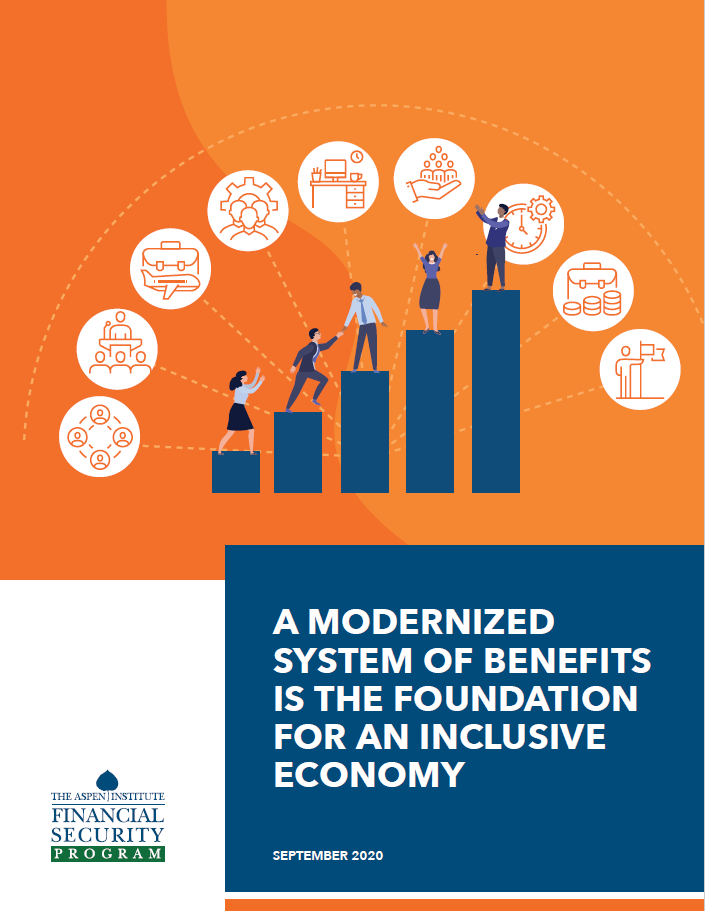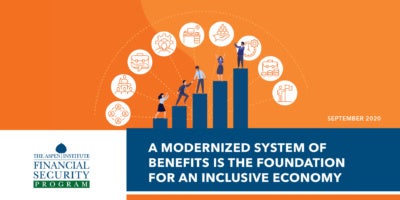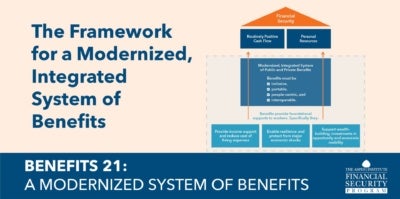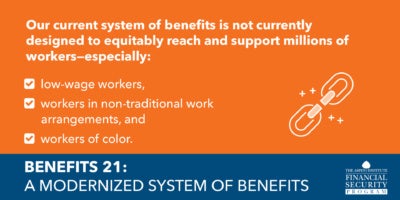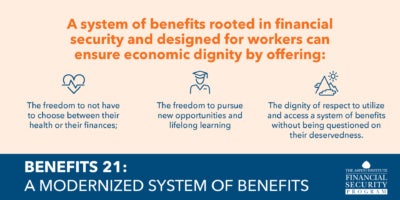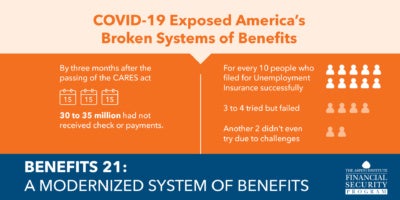In the United States, our system of benefits–both those publicly and privately offered–are foundational supports for the millions of workers who have effective access to them. But a growing percentage of our workforce is disproportionally excluded from workplace benefits and often rely on a public system of benefits that is complex, fragmented, and not designed to meet their needs. This is a solvable problem.
Benefits21 is a new initiative of the Global Inclusive Growth Partnership, a collaboration between the Aspen Institute and the Mastercard Center for Inclusive Growth. Today, it released the paper, “A Modernized System of Benefits is the Foundation for an Inclusive Economy.” It describes a framework for building and delivering an integrated system of benefits that is inclusive of all workers; portable to prevent interruption due to job loss; people-centric to prioritize the experience of those who need it to work; and interoperable across technology systems.
Our system of benefits is not currently designed to equitably reach and support millions of workers—including many of the 53 million low-wage workers, 15 million non-traditional workers, and 61 million workers of color. Across our country, one in four workers relies on the public safety net, navigating a system that is antiquated, complex and designed without their dignity or financial security in mind. Benefits21 will take an integrated approach to modernizing our system of benefits – starting with essential guiding principles for design and delivery and ending with the commitment to act to ensure all workers recover from this pandemic, have the foundational supports to be resilient to the next economic downturn, and can prosper.
Key Findings:
This paper was also developed as part of the Global Inclusive Growth Partnership, a collaboration between the Aspen Institute and the Mastercard Center for Inclusive Growth.
